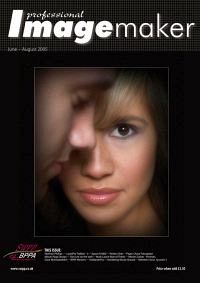articles/Business/legal-page2
Norman Phillips on Legal - part 2 of 1 2
Published 01/06/2005
Few professional photographers ever give the legal side of their business much thought. When they do they retreat from the legal protections they need in fear of rejection by potential clients. Wedding photographers are especially at risk because the overwhelming majority use documents that are intended as legal commitments between themselves and their clients that are so flawed they would be better off without the socalled 'contract'.
In today's litigious environment the legal aspects of our business requires our special attention because what appears to be an innocuous relationship can readily turn very nasty and we can quickly be in the poor house. There are so many situations that we should have effective legal redress and protection for that we all need to seriously review how we do business.
Being something of an amateur lawyer I have always written my own forms and contracts. Then I had my attorney review them to ensure that I was on the right track. My wedding contract had always been something of a model for my professional colleagues and some years ago resulting from an article I wrote for a leading magazine I sent out almost 1,000 copies to photographers across the country for $2 plus their postage return envelope. But in early 2004, due to the rapid changes in the way we create images I made some changes to the contract and sent it to Chris Nudo, my attorney for his review. Chris did much more than review the document. He researched the industry and reviewed contracts that were being advocated by leading associations and publishers and he also reviewed photography legal books too. His conclusion was that my contract was by far the best though it still could do with some work. Not only did Chris conclude that my contract was by far the best he stated that there was not another contract he had reviewed that he could recommend.
When we began discussing this issue we decided to conduct a comprehensive review of all the documents that were being advocated to photographers. This research brought us to the decision to write a book for the use of professional photographers in the disciplines of weddings (event), portraits, and fine art, commercial and related aspects of those areas of our business. We set out to create the best advice and recommendations that would be available. The book took six months to complete. It is primarily based on Illinois law but has pertinent relevance to any photographer in any state and any country.
The book, "Wedding and Portrait Photographers Legal Handbook" arrived in December 2004. It is published by Amherst Media, an exclusive publisher of photography books. The excitement about the book is considerable. It has been described as the book every photographer should own.
Admittedly, as I was the primary contributor for the book and responsible for identifying all the issues we should cover I am biased, so my recommendation needs to be seen in that light. I have written three other books (the third arrives on the bookshelves this summer) and am in the process of writing three others. They are all about the technique of photography, but though I am happy with them I sincerely believe that this legal book is my most important contribution to the industry and when you review it you will see its important relevance to our wellbeing.
I truly believe that you need this book if you are not an attorney. The potential for serious litigation in so many areas of our business means we need to create a legal barrier between potential financial ruin and us. NORMAN PHILLIPS on legal - WHAT'S YOUR LEGAL STATUS? FSWPP & 25 If I were to have one pound for each time someone asked me at seminars and presentations how much I charge for my portraits and wedding photography I might have enough to for a down payment for something really valuable.
Please Note:
There is more than one page for this Article.
You are currently on page 2
1st Published 01/06/2005
last update 09/12/2022 14:55:42
More Business Articles
There are 0 days to get ready for The Society of Photographers Convention and Trade Show at The Novotel London West, Hammersmith ...
which starts on Wednesday 15th January 2025





